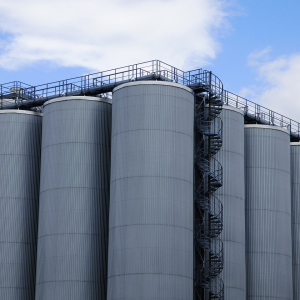
This paper estimates the climate implications of replacing 90% of conventional agricultural production with electrically-powered microbial biomass cultivation. If such a replacement took place before a widespread transition to renewable energy, economy-wide emissions could in fact increase as energy would have been directed away from replacing fossil fuels. If conducted after the transition to renewable energy, the replacement could help to mitigate climate change, producing cooling of between 0.22°C and 0.85°C depending on assumptions about socioeconomic pathways.
The authors stress that the paper is a thought experiment, and that replacing agriculture with microbial biomass production would have significant social and environmental risks that should be considered.
Abstract
Global agriculture is the second largest contributor to anthropogenic climate change after the burning of fossil fuels. However the potential to mitigate the agricultural climate change contribution is limited and must account for the imperative to supply food for the global population. Advances in microbial biomass cultivation technology have recently opened a pathway to growing substantial amounts of food for humans or livestock on a small fraction of the land presently used for agriculture. Here we investigate the potential climate change impacts of the end of agriculture as the primary human food production system. We find that replacing agricultural primary production with electrically powered microbial primary production before a low-carbon energy transition has been completed could redirect renewable energy away from replacing fossil fuels, potentially leading to higher total CO2 emissions. If deployed after a transition to renewable energy, the technology could alleviate agriculturally driven climate change. These diverging pathways originate from the reversibility of agricultural driven global warming and the irreversibility of fossil-fuel CO2 driven warming. The range of reduced warming from the replacement of agriculture ranges from −0.22 (−0.29 to −0.04) °C for shared socioeconomic pathway (SSP)1 −1.9 to −0.85 (−0.99 to −0.39) °C for SSP4-6.0. For limited temperature target overshoot scenarios, replacement of agriculture could eliminate or reduce the need for active atmospheric CO2 removal to achieve the necessary peak and decline in global warming.
Reference
MacDougall, A.H., Rogelj, J. and Withey, P., 2021. Estimated climate impact of replacing agriculture as the primary food production system. Environmental Research Letters, 16(12), p.125010.
Read the full paper here. See also the TABLE explainer How can we reduce food-related greenhouse gas emissions? and the entry Solar-powered microbial biomass offers low-impact protein in our Research Library.







Post a new comment »